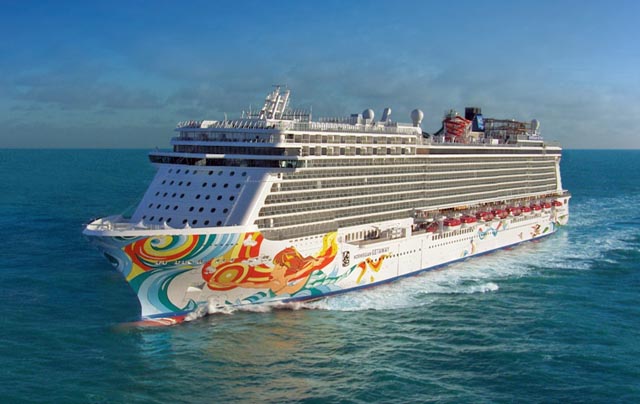ABB and Norwegian Cruise Line Holdings (NCLH) have signed a long-term partnership agreement to accelerate the decarbonisation and digitalisation of the Norwegian Cruise Line (NCL) fleet.
Targeting increased safety and efficiency, the agreement covers 14 existing ships and a further four vessels due for delivery from 2025 to 2028. The first phase of the partnership includes a 10-year Azipod propulsion service agreement for the fleet, providing preventive maintenance to support safety and maximise vessel availability as well as fast turnaround for planned Azipod propulsion maintenance. In addition, ABB will modernise the propulsion control system for 11 vessels, and add shore connection installations onboard four ships. With these planned installations the entire NCL fleet will be able to connect to shoreside power supply for emissions-free operations while in port.
Patrik Dahlgren, EVP Vessel Operations, NCLH said: “We are pleased to solidify our long-term collaboration with ABB in a strategic partnership that aligns with our climate action strategy, centered as it is on the pillars of efficiency, innovation and collaboration. With ABB’s support, we will accelerate the decarbonisation and digitalisation of our fleet, taking our operations another step forward towards a sustainable future.”
Juha Koskela, Division President, ABB Marine & Ports, added: “Norwegian Cruise Line Holdings is a highly valued partner of ABB, and this agreement reaffirms the strong collaboration between our companies. We are pleased to continue our collaboration and see our solutions and services playing an integral role in the modernization of their growing cruise fleet. Through this collaboration, we will help NCLH to achieve safer and more efficient vessel operations while, more broadly, contributing to maritime decarbonisation.”
Based in the US, NCLH operates vessels under three wholly owned subsidiaries: Norwegian Cruise Line, Oceania Cruises and Regent Seven Seas Cruises, all of which incorporate and utilise ABB technologies.
From its creation three decades ago, Azipod propulsion is claimed to have revolutionised marine transport by delivering gains for performance, efficiency, sustainability and reliability. The gearless, steerable propulsion system, with the electric drive motor in a pod outside the ship’s hull, can rotate 360 degrees to increase vessel manoeuvrability and efficiency, while cutting fuel consumption by up to 20% compared to conventional shaftline systems. Since the first installation on a cruise ship over 25 years ago, Azipod technology is estimated to have saved more than one million tons of fuel in the cruise segment alone.
Image: NCL vessel ‘Norwegian Getaway’ (source: ABB/JLA)



